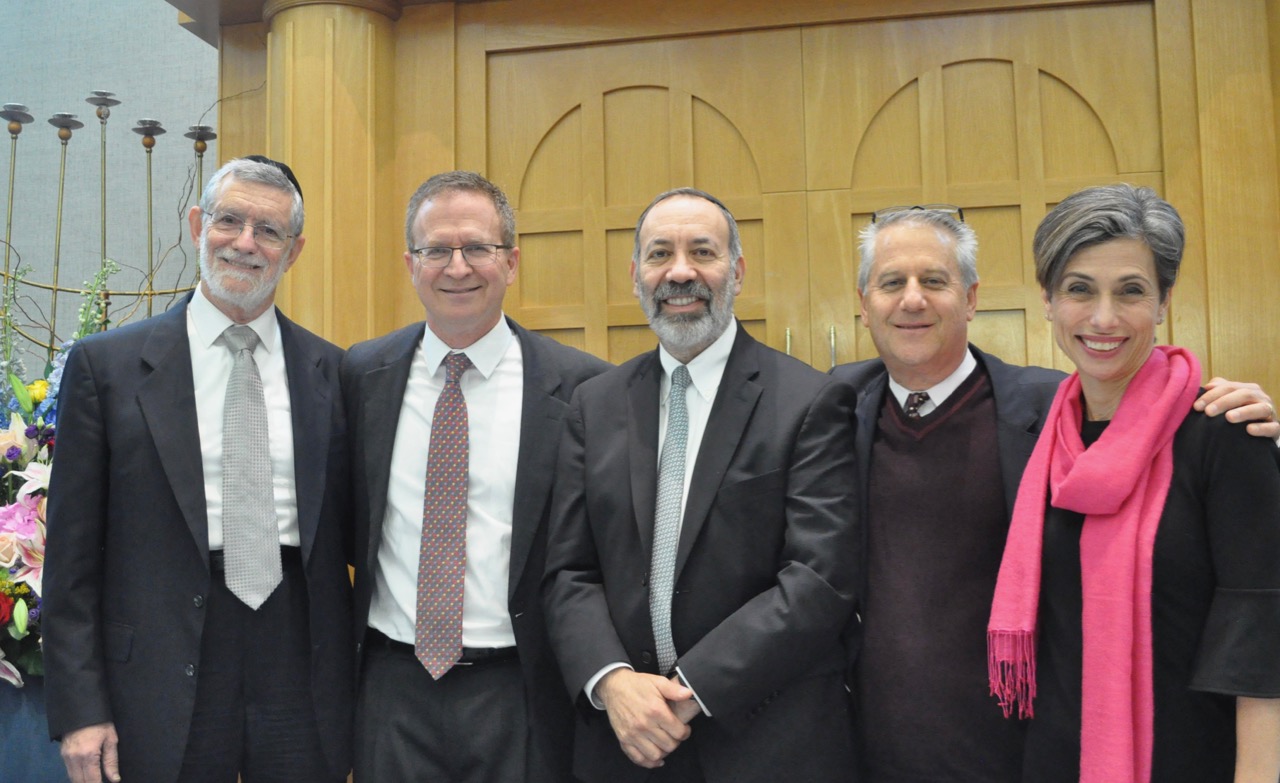By Samuel Glasser
Unity was the underlying theme at Great Neck’s annual Rabbinic Dialogue last Sunday, where the rabbis of four synagogues discussed political and religious divisions in the Jewish community, continuing a 30-year tradition.
The panel comprised Rabbis Dale Polakoff of Great Neck Synagogue, this year’s host; Tara and Meir Feldman of Temple Beth-El; Howard Stecker of Temple Israel and Yaacov Lerner of Young Israel.
Rabbi Lerner said in an interview that one of the principal goals of the discussion was to try to find common ground and bring more unity despite differences of religious practice and philosophy between the major branches of Judaism.
“There’s no question that the rise in anti-Semitism has sensitized people,” he said.
At the panel, the rabbis spoke of the targeting of religious institutions – churches and mosques as well as synagogues.
Rabbi Polakoff said that while “we will continue to disagree on fundamental issues of religious practice, our enemies don’t care how we define ourselves” such as Reform, Conservative or Orthodox.
“When it came to the Holocaust, your level of observance didn’t matter,” Polakoff said.
Rabbi Stecker noted that while the recent attacks on all houses of worship are distressing, “when a synagogue is shot up, it’s family.”
“We may disagree with politics and other issues,” Stecker said, “but we are family.”
“Anti-Semitism is so dangerous and we don’t know where it is going,” Rabbi Meir Feldman said, adding that how Jews relate to each other is important.
He said the destruction of the Temple and other calamities came about not because of anti-Semitism but because of how the Jews treated each other at the time.
“Our job is to recognize our history and realize that the danger is from within,” Meir Feldman said.
A member of the audience asked the rabbis what they were doing to educate the world at a time “when moral and ethical leadership in Washington, D.C., is lacking.”
“When moral leadership and Washington are said in the same breath, it becomes a divisive political issue,” Polakoff said. “I dread … speaking about it since it is taken as an endorsement of one party over another. In such a charged atmosphere, politics seems to inject itself in every conversation. We all need to scale the intensity back a little.”
Rabbi Stecker said that one way to lessen the polarization is to work past our political blind spots, but that many people probably don’t know what their blind spots are.



